Do hard mattresses help with back pain? We asked a chiropractor
Firm mattresses aren't always the answer if you have a bad back
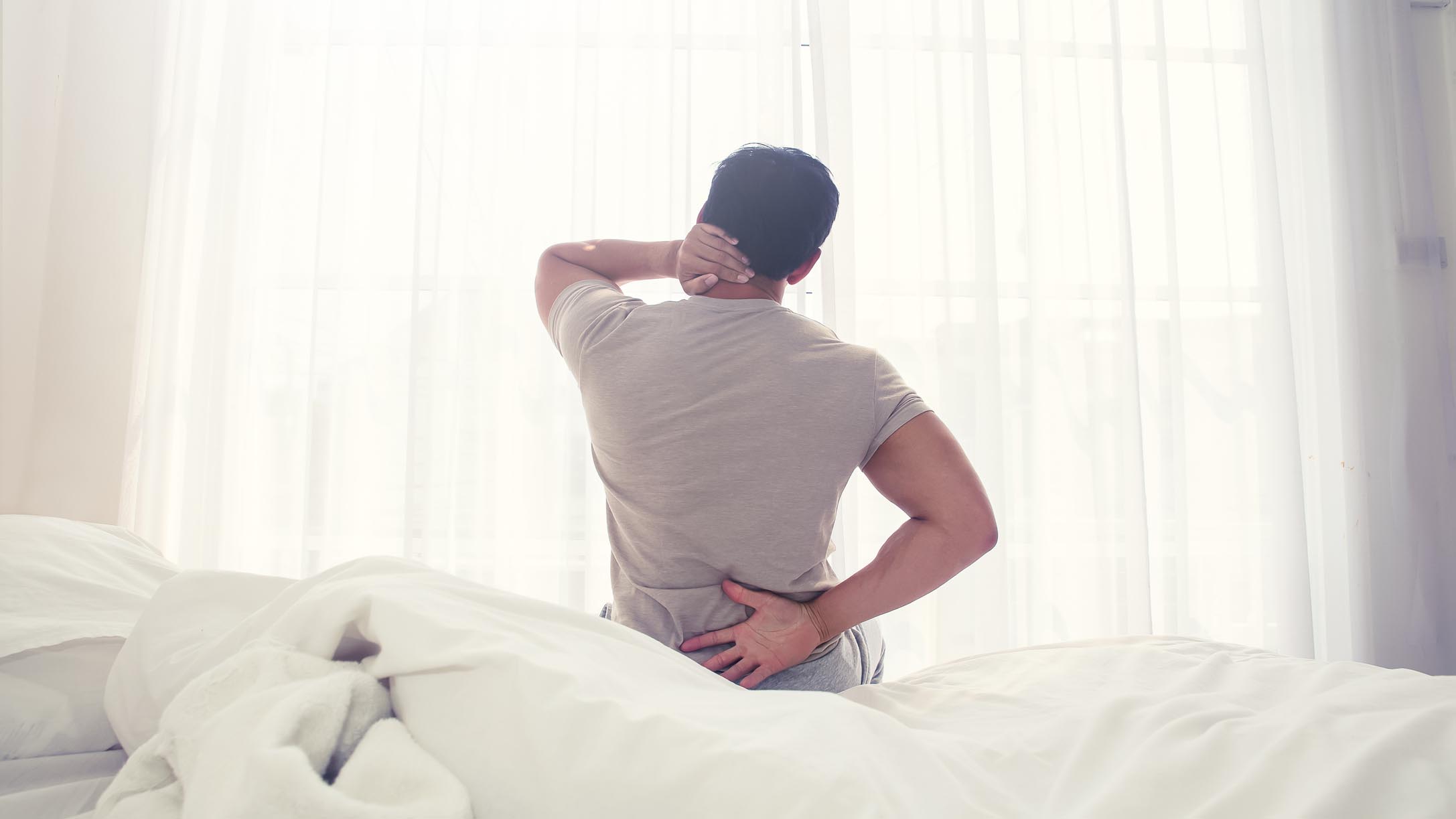
Accepted wisdom in the past has always been that a hard mattress is best for back pain. But is a hard mattress actually the best choice? As with all things sleep, the answer depends on a number of factors, including your body type, primary sleep position and the type of back ailment you're suffering from.
With so many choices out there, finding the best mattress for your sleeping style and particular needs can feel tricky; particularly when you need to factor in keeping yourself pain-free. To help establish whether a hard (firm) mattress is best for you, we have drawn on advice from leading chiropractors who specialize in spine health.
The answer here isn’t entirely straightforward, with there being certain factors that will influence what type of mattress is best for your specific back pain. Here's what they had to say, plus advice on how to choose the best mattress for your own back ailment.
What is a hard mattress?
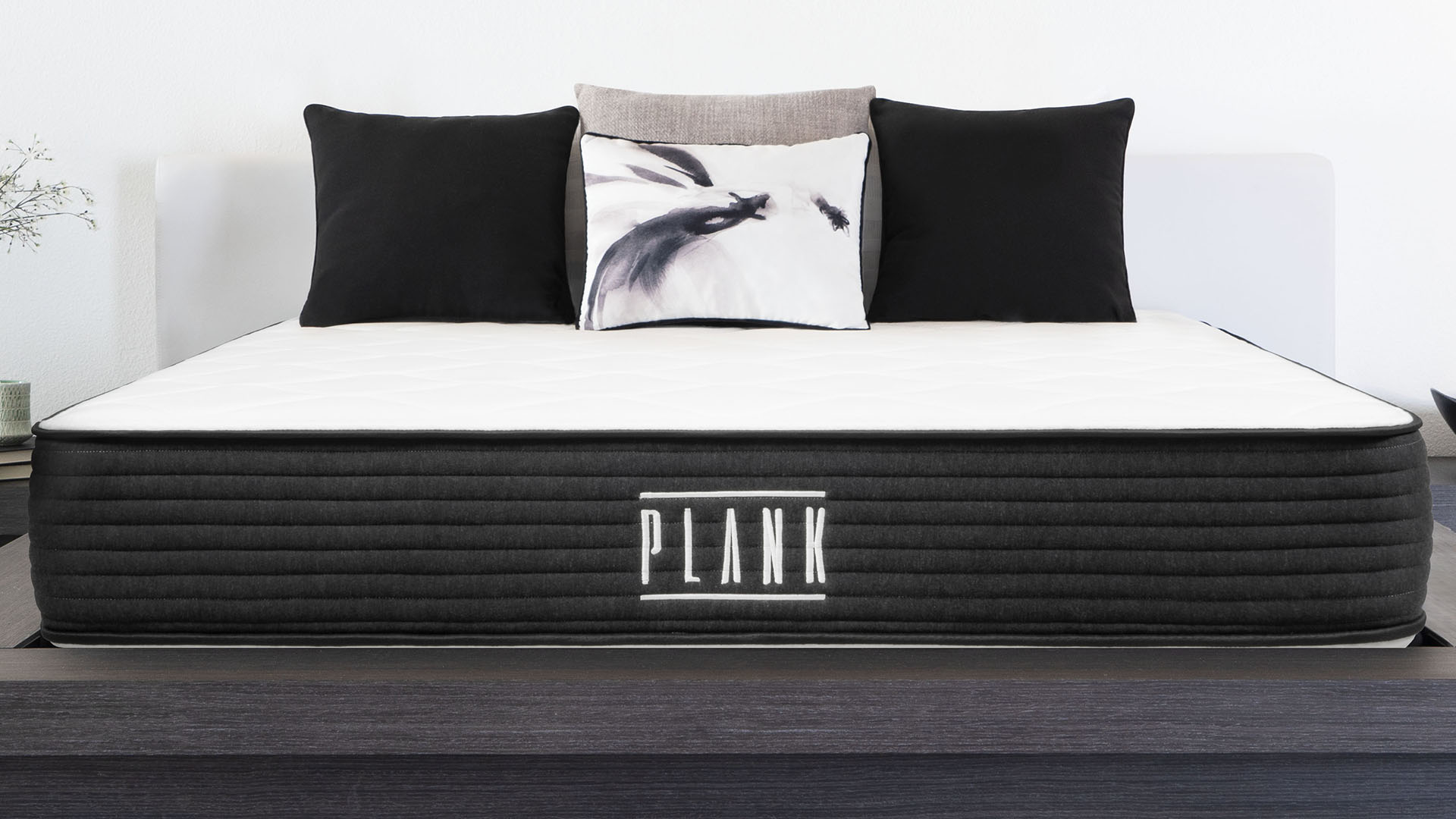
Hard and firm mattresses are two terms that are used interchangeably but mean the same thing - it's a firm mattress that provides a firmer surface to sleep on. On the firmness scale, a hard mattress rates between 8 -10 out of 10.
The best firm mattresses offer even weight distribution, increased airflow around the body and holds the spine in correct alignment with the rest of the body. A hard mattress shouldn’t feel like lying on a rock and you should still expect a little contouring, along with more of a floating feeling. However, a firm mattress offers very little sink-in support that side sleepers require.
The vast majority of firm mattresses use a combination of coils and sturdier, bouncy foams such as latex. Softer memory foam is also sometimes added for pressure relief but expect this to be surrounded by firmer foams to prevent any sinkage. Occasionally hard mattresses are made from all-foam (such as the Plank Firm mattress), but this is fairly unusual.
Firm mattresses are generally a little longer lasting than their softer compatriots, due to the fact you don’t sink as far into the surface layers. This is particularly true if you choose a latex based mattress, as natural latex is incredibly durable.
Sign up to get the BEST of Tom's Guide direct to your inbox.
Get instant access to breaking news, the hottest reviews, great deals and helpful tips.
Should you choose a hard mattress for back pain?
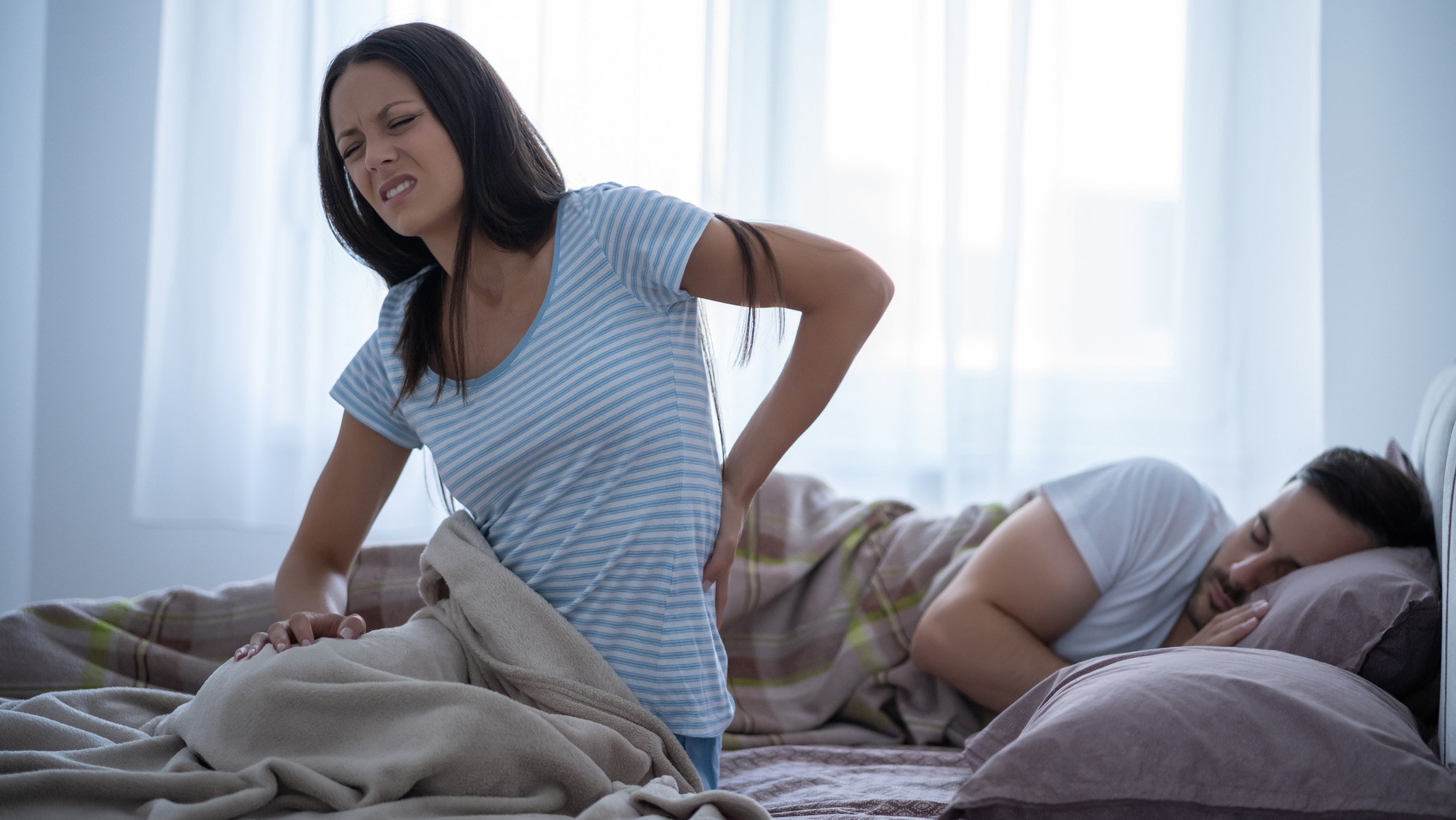
The best mattress for back pain will help soothe aches and pain - but is a hard mattress right for you? The answer here isn’t entirely straightforward, with there being certain factors that will influence what type of mattress is best for your specific back pain. And before you even consider buying a new bed, you should think about whether you current mattress might be causing your back problems.
"Developing aches and pains is a common health consequence of sleeping on an old bed.,", Dr Chris Tomshack, CEO of HealthSource Chiropractic explained when we spoke to him surrounding why firm mattresses aren't always best for back pain.
People tend to keep their mattresses longer than they should, and as a result, they may feel sore or stiff when they wake up multiple times a week. People assume that purchasing a firmer mattress can solve their pain issues, but in reality, they need to replace their old mattress with a new one that aligns with their body type and sleep preferences."
If you think your existing mattress might be the culprit check out our guide to the signs it's time to buy a new mattress. But if there’s nothing wrong with your existing mattress, should you choose a hard mattress to help cure your back pain?
Dr Ben Carvosso, principal chiropractor at Mornington Peninsula Chiropractic Centre suggests that you should take weight into consideration, “"Lightweight sleepers (under 130lbs) benefit from the added give in a medium firm mattress, which will support their body. Although firm mattresses typically offer more support, lightweight sleepers will gain little support as there simply isn’t enough give."
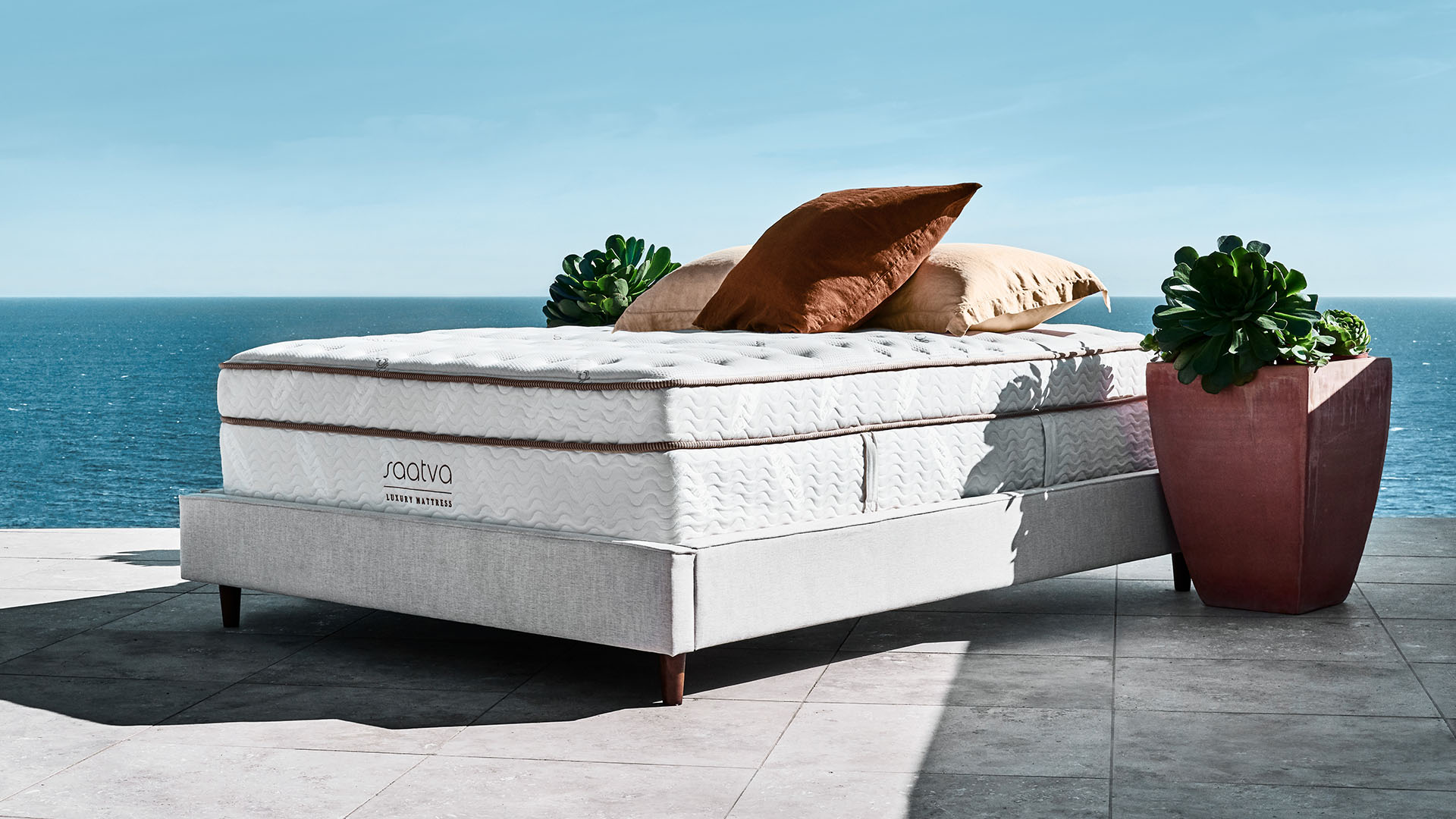
But if you’re a heavier sleeper (over 230lbs), Dr Carvosso recommends investing in one of the best mattresses for heavy people and a firmer feel as anything softer could result in a sleeper sinking too far into the mattress, aggravating any existing back pain.
In a similar fashion, your sleeping style also plays a part in the mattress you should choose. Side sleepers need a softer mattress to cushion their pressure points at the shoulders and hips, whilst stomach sleepers will benefit from a firm mattress to keep their hips raised and spines aligned. Back sleepers could well benefit from a firm mattress, particularly if they suffer with lower back pain or sciatica.
How to choose a good mattress for back pain: 3 things to look for
How do you decide on the right mattress for your back pain when everyone’s definition of what is a hard or soft mattress is slightly different? We've outlined three factors to consider before buying the right mattress for your back pain.
1. Make sure your mattress has a trial period
It doesn’t matter if you buy your mattress online or after testing one out in a shop – make sure it has a decent trial period for you to try it out at home. Experts suggest that it takes at least 30 days to adjust to a new mattress, with most trial periods being a minimum of 100 days (which gives you plenty of time to decide if the mattress is right for you).
It’s common for a mattress to feel unfamiliar when you first lie on it, particularly if you’ve been used to lying on an old mattress with dips and lumps. Remember as well that many of today’s best mattresses are mattresses in a box, and will need time to fully inflate and even out for optimum performance.
Some brands will offer longer trial periods, with Saatva, Nectar, Awara and DreamCloud being amongst the few that offer a full year. Make sure to check the return policy as well, as some brands charge a fee (Saatva charge $99, for example).
2. Carefully consider the source of your back pain
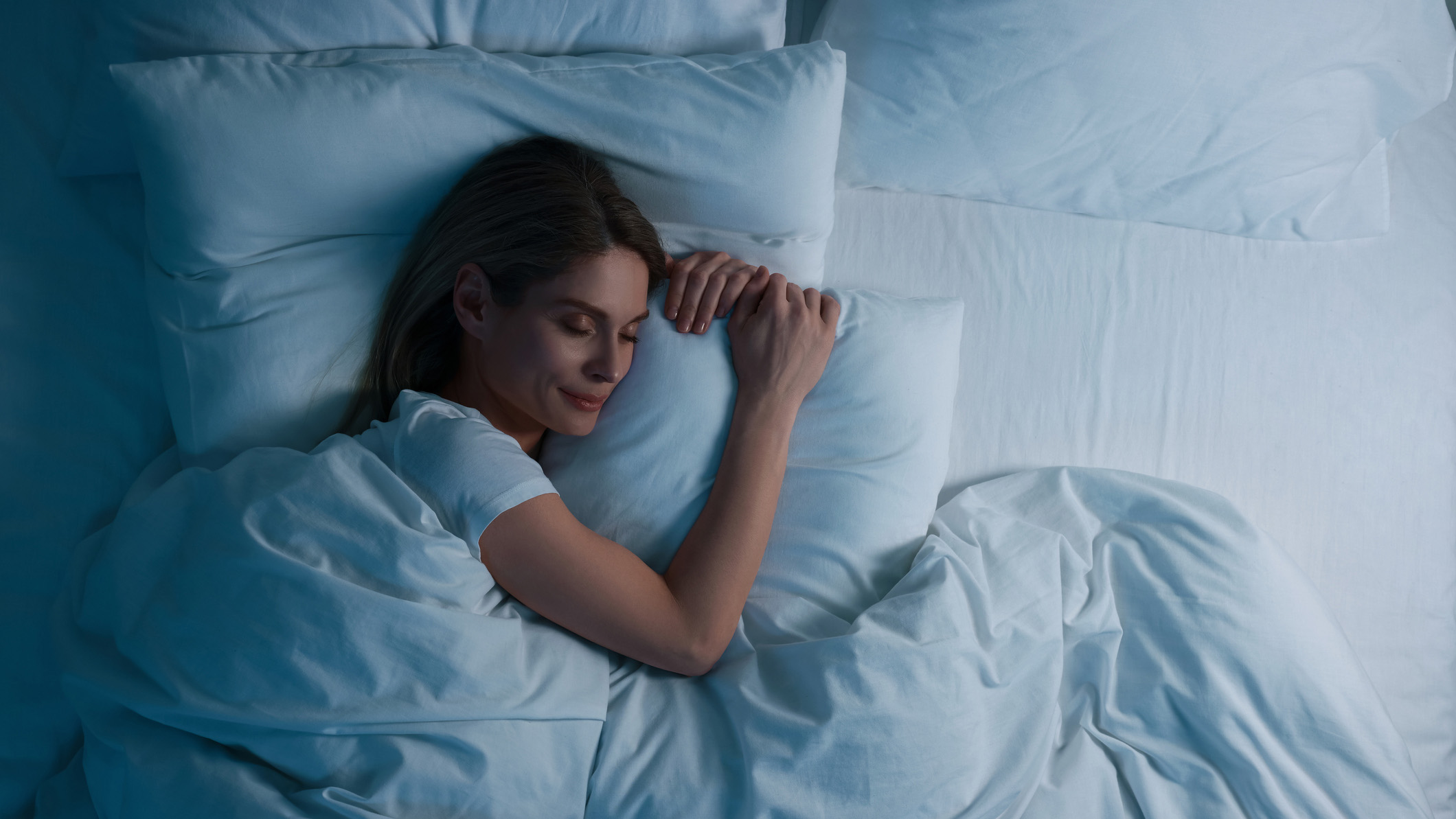
If you’re suffering with lower back pain, a firm mattress could be the answer. It’s also a good move for sciatica sufferers, a condition that affects the lower back, hips and legs. In these cases, a firmer mattress helps to support the lumbar region and prevents any unwanted pressure from being transferred to the hips and shoulders. As a side note, a firm mattress could also be the answer if you’re suffering with neck pain, as the firmer support will prevent your chest from sinking in and putting strain on your neck.
On the flip side, upper back pain sufferers may find that a medium firm mattress is a better fit, providing a little more softness at the pressure point of the shoulders and helping them to sink in enough to provide cushioning and pressure relief.
3. Think about your body type and sleeping style
For light and average weight sleepers, a medium firm mattress is usually recommended, as it allows the right amount of cushioning alongside support and pressure relief. However, stomach sleepers may find that they need a firmer mattress to keep their hips supported and spines aligned.
Light and average weight back sleepers may also prefer a firmer mattress, particularly if their back pain is lower down, but should take care to check that the natural ‘S’ curve of their spine isn’t being flattened out by a too-firm bed.
Side sleepers of all body types should go for a medium firm or medium mattress. If you’re suffering with back pain as a dedicated side sleeper, the chances are that too much pressure is being put on your shoulders and hips as you sleep.
This sleeping position needs contouring and sinkage around these pressure points – lightweight sleepers might even find that they’re better off with a softer, plusher mattress. (After reviewing it, the Helix Midnight Luxe is our best mattress for back pain for side sleepers, thanks to its enhanced lumbar support and body contouring support).
Finally, heavier sleepers of over 230lbs should benefit from a firm mattress to stop them sinking too far in and losing support.
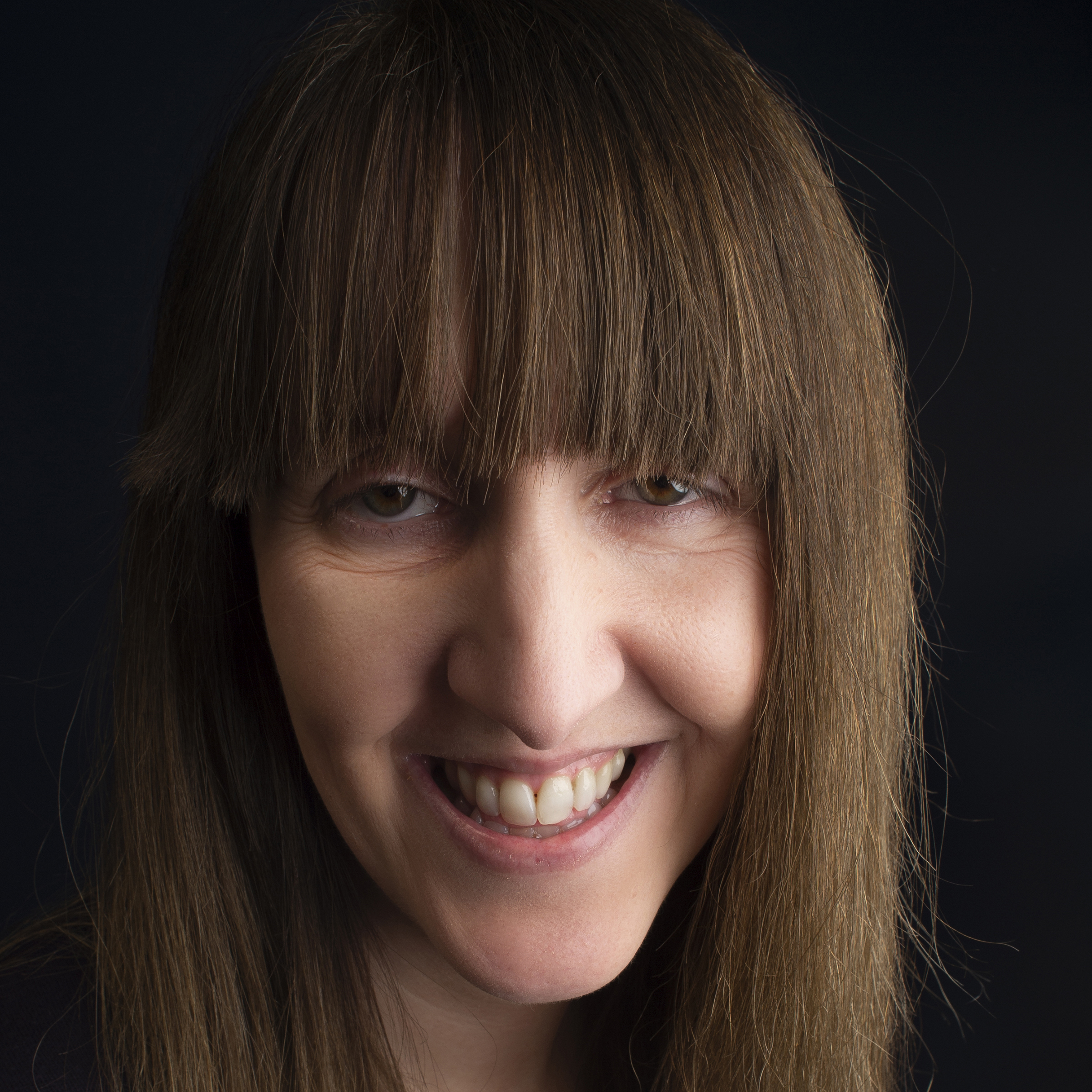
Jo Plumridge is an experienced mattress reviewer with several years' experience covering all things mattresses and sleep, and who tests memory foam, hybrid and organic mattresses. What Jo doesn't know about a boxed mattress isn't worth knowing, so naturally we tasked her with producing a series of features for Tom's Guide looking at all aspects of mattresses, from how to pick between latex and memory foam (it's a tricky one), to the seven mistakes people make when buying a mattress for the first time. When testing the DreamCloud Luxury Hybrid for Tom's Guide, Jo said: "I loved the back support and pressure relief it offered. Plus, it looks far more expensive than it is." When she isn’t writing about sleep, Jo also writes extensively on interior design, home products and photography.
